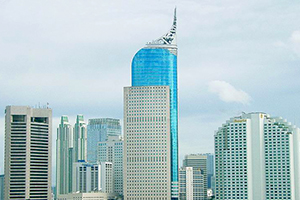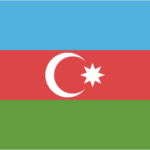
Indonesia and Turkey are beating the world’s biggest emerging markets by almost any financial measure, even while they may be too small to join the BRICs.
Indonesia’s equity index climbed 22 percent this year and Turkey’s rose 13 percent, both hitting all-time highs on July 29. Credit-market rallies sent yields on the nations’ foreign- currency debt to the lowest levels on record, JPMorgan Chase & Co.’s EMBI Global gauges show. The MSCI BRIC Index of shares in Brazil, Russia, India and China is still 41 percent below its peak after losing 0.6 percent in 2010.
Less than two years after the global financial crisis prompted concern Indonesia and Turkey may default, investors are betting lower debt, growing populations and rising profit will spur economic expansions that led Goldman Sachs Group Inc.’s Jim O’Neill to promote the BRIC nations in 2001. While China’s gross domestic product is about 4.2 times Turkey and Indonesia’s combined, they lead the “Next 11” smaller emerging nations with the most potential to affect world growth, O’Neill says.
“There’s a paradigm shift in the way both countries have been governed and in terms of economic performance,” Amer Bisat, the former senior economist at the International Monetary Fund who helps oversee more than $1 billion as a money manager at hedge-fund firm Traxis Partners LLC in New York. They’re “large, extremely systemically important and stable,” he said. “The market is looking at them in a very different light.”
Biggest Bets
The largest emerging-market stock mutual fund managers, which oversee about $250 billion, boosted their holdings in Indonesia and Turkey to the top “overweight” positions among 21 markets in June on expectations the gains will continue, data compiled by Cambridge, Massachusetts-based EPFR Global and JPMorgan of New York show.
The fund managers are turning optimistic as profit growth outpaces share prices in both countries, leaving the Jakarta Composite Index and ISE National 100 Index trading at price- earnings ratios about 20 percent below their pre-crisis peaks, according to data compiled by Bloomberg.
The Jakarta gauge advanced 0.7 percent today, while the ISE National index rose 0.2 percent. The MSCI BRIC index climbed 0.6 percent at 10:55 a.m. in New York.
Mark Mobius, who oversees about $34 billion as the Singapore-based chairman of Templeton Asset Management Ltd., said last month by e-mail that he plans to increase holdings of stocks in Turkey, where the firm already has more than $1 billion invested. In June, he wrote on his blog that Templeton has a “positive take on investment opportunities” in Indonesia, while Antoine van Agtmael, chairman and chief investment officer of Emerging Markets Management LLC in Arlington, Virginia, said on Bloomberg Television that the country is the most attractive among Southeast Asian markets.
Relative Valuations
The bullish bets are a turnaround from 2008, when investors shunned Indonesia and Turkey as the global economy fell into the worst recession since World War II. The Jakarta Composite and ISE National both sank more than 50 percent, the nations’ currencies weakened at least 15 percent versus the dollar and credit-default swap prices suggested a 66 percent chance of default for Indonesia and 52 percent odds for Turkey, data compiled by Bloomberg show.
Indonesian stocks are becoming more expensive relative to other developing markets. The Jakarta gauge trades at 13.6 times analysts’ estimates for earnings over the next 12 months, near the highest on record relative to the MSCI Emerging Markets Index, which is valued at 11.3 times, according to data compiled by Bloomberg since 2006. The MSCI BRIC gauge has a ratio of 11.
News Source: Bloomberg


















